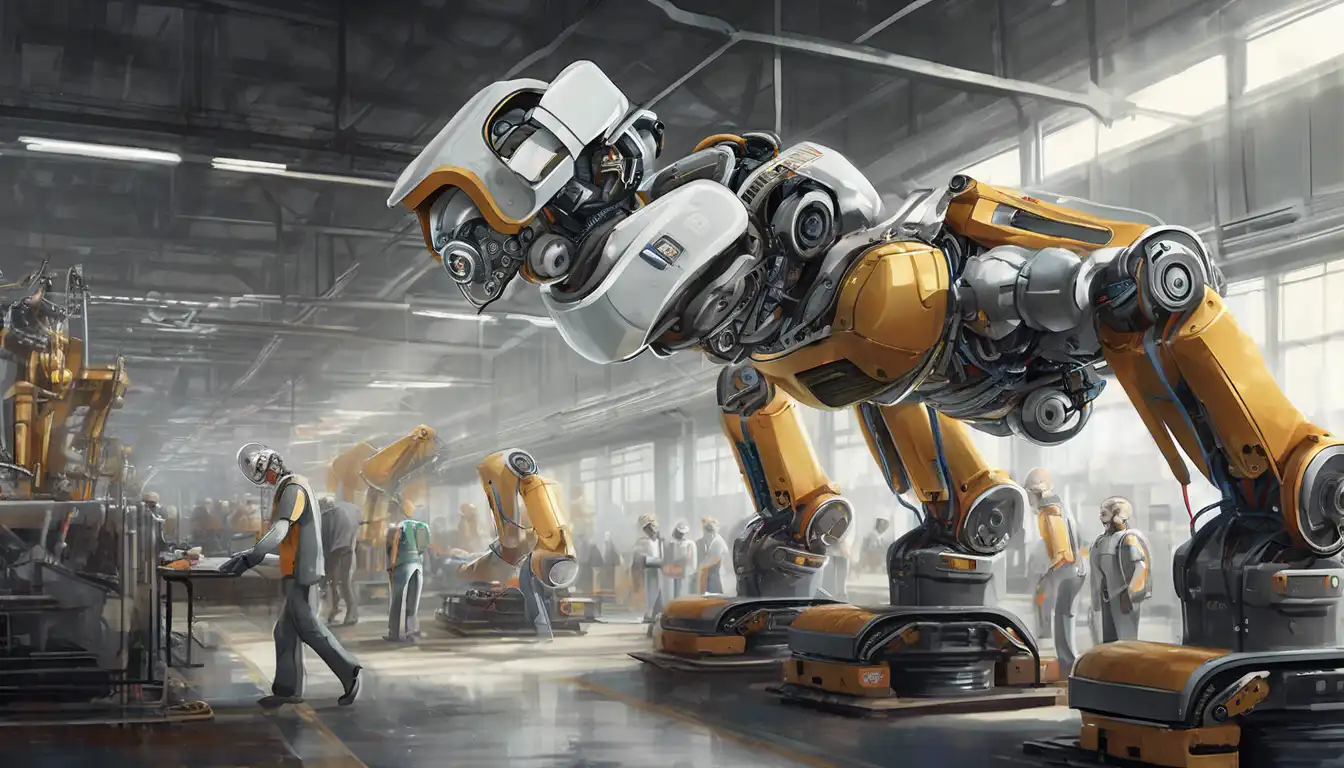The Revolutionary Impact of Robotics on Modern Manufacturing
In the ever-evolving landscape of manufacturing, robotics has emerged as a game-changer, revolutionizing how products are designed, produced, and delivered. This transformation is not just about automating repetitive tasks but also about enhancing precision, efficiency, and safety in manufacturing processes. Let's delve into how robotics is reshaping the manufacturing sector.
Enhanced Efficiency and Productivity
Robotics in manufacturing has significantly boosted efficiency and productivity. Robots can operate 24/7 without fatigue, performing tasks at a consistent speed and precision that far surpass human capabilities. This relentless efficiency reduces production times and increases output, enabling manufacturers to meet growing consumer demands more effectively.
Improved Quality and Precision
The precision of robotic systems ensures that every product meets stringent quality standards. With advanced sensors and programming, robots can perform intricate tasks with minimal errors, reducing waste and rework. This level of precision is particularly crucial in industries like aerospace and automotive, where even the slightest deviation can have significant consequences.
Cost Reduction
While the initial investment in robotics can be substantial, the long-term savings are undeniable. Robots reduce labor costs, minimize waste, and lower the risk of costly errors. Additionally, the durability and low maintenance requirements of robotic systems contribute to further cost savings over time.
Worker Safety
Robotics has also made manufacturing environments safer for human workers. By taking over dangerous tasks such as handling heavy materials or working in hazardous conditions, robots help reduce workplace injuries. This not only protects employees but also decreases liability and insurance costs for manufacturers.
The Future of Manufacturing with Robotics
As technology advances, the role of robotics in manufacturing is set to expand even further. Innovations like collaborative robots (cobots), which work alongside humans, and AI-driven robots, which can learn and adapt to new tasks, are paving the way for more flexible and intelligent manufacturing systems. The integration of IoT in manufacturing with robotics is also creating smarter, more connected production lines that can predict maintenance needs and optimize operations in real-time.
In conclusion, robotics is transforming manufacturing in profound ways, offering benefits that include increased efficiency, improved quality, cost savings, and enhanced safety. As manufacturers continue to embrace these technologies, the future of manufacturing looks brighter and more innovative than ever. For more insights into the latest manufacturing technologies, check out our article on the future of manufacturing.
